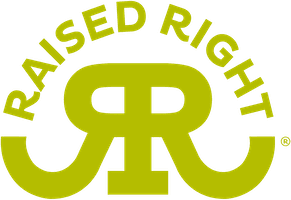
All dogs can suffer from digestive issues every now and then but the Shih Tzu breed can be more prone than some other breeds. They are a small breed and can quickly become very unwell if they are left untreated. Always consult your veterinarian if you are concerned that your Shih Tzu is sick. In this article, we’ll take a closer look at Shih Tzu’s digestive problems and how you can best help your Shih Tzu to stay well.
How do I know if my Shih Tzu has a digestive problem?
Digestive issues in the Shih Tzu breed can cause many different signs, depending on the underlying problem and the individual dog. Signs that could indicate that your dog has a digestive problem include:
- Nausea – excessive drooling or frequent lip licking and swallowing
- Vomiting
- Diarrhea
- Constipation
- Regurgitation
- Abdominal discomfort
- A gassy or gurgly stomach
- Flatulence
- Restlessness
- Weight loss
- Lethargy
- Inappetence
Any one of these signs could be an indicator that your Shih Tzu is not feeling well and has a digestive problem.
Shih Tzu’s can be particularly prone to episodes of diarrhea. Whilst the occasional isolated episode might not be too much to worry about, if you notice blood in your dog’s stool, if your dog’s stool is black and tar-like (melena), or if his diarrhea isn’t improving, you should book an appointment with the veterinarian.
How are digestive problems in Shih Tzu’s diagnosed?

If your Shih Tzu has diarrhea that isn’t getting better or keeps recurring, you might be asked to collect stool samples to send to the laboratory to check for bacteria or parasites.
Your veterinarian will ask questions about your Shih Tzu’s history, including whether or not they have eaten anything they shouldn’t have, how long they have had symptoms, and whether or not they have had similar issues previously.
If the veterinarian is concerned that your Shih Tzu is very unwell or that he has an underlying illness, they might need to perform investigations such as blood tests, urinalysis, an ultrasound scan, or an x-ray. If your Shih Tzu has diarrhea that isn’t getting better or keeps recurring, you might be asked to collect stool samples to send to the laboratory to check for bacteria or parasites.
What causes digestive problems in Shih Tzu’s?
Shih Tzu’s can develop digestive problems for all sorts of reasons. Anything that upsets the balance of the normal microorganisms (such as bacteria and protozoa) within a dog’s intestinal tract (known as the microbiome or ‘good bacteria’) has the potential to cause a digestive upset. Things that can cause an alteration in a dog’s microbiome include:
- Dietary indiscretion – when a dog eats things he shouldn’t, such as rotten food, or non-food items
- Intestinal parasites – such as roundworm, or giardia
- Viruses – such as parvovirus or rotavirus
- Bacterial infections – such as salmonella, campylobacter, or E. coli
- Stress
- Intestinal obstruction – usually caused by a dog eating a non-food object such as a stone or ball
- Toxin ingestion – such as a poisonous plant or chemical
- Pancreatitis – an inflammation of the pancreas that can be very painful
- Cancers of the gastrointestinal tract
- Other underlying illnesses – such as liver disease
Often, the cause is unknown, especially when the condition clears up quickly on its own without the need for further tests.
How are digestive problems in Shih Tzu’s treated?

If your dog is suffering from diarrhea followed by dehydration, if left untreated, it can be fatal so it is important that you seek veterinary help right away.
The treatment of a digestive upset will depend on the cause. For a mild bout of vomiting and/or diarrhea, treatment usually involves supportive care such as anti-sickness medications, antacids, and probiotic fiber paste. You should never give your Shih Tzu human medications, such as Pepto-Bismol, as these can be toxic to dogs.
Dogs with severe digestive upset might stop drinking because they feel too poorly and they can quickly become dehydrated. Dehydration might be worsened through vomiting and/or diarrhea and it can be very serious. If left untreated, dehydration can be fatal so it is important that you seek veterinary help right away if you suspect your Shih Tzu is dehydrated. Your Shih Tzu might need a stay in the hospital to receive intravenous fluids (a drip) to replace the fluids that they have lost.
If your dog has a painful tummy then pain relief medications might also be prescribed. Antibiotics might be given if your Shih Tzu has a bacterial infection, or if their symptoms are severe.
The importance of nutrition in Shih Tzu digestive problems

It can often help to feed a bland diet or a limited ingredient dog food to reduce the likelihood of your dog consuming an ingredient that doesn’t agree with him.
Diet and nutrition play a very important role in your dog’s digestive health and can help to prevent as well as treat digestive upsets. For an isolated episode of vomiting and/or diarrhea, it is best to feed your Shih Tzu small but frequent meals of highly digestible, low-fat food.
Shih Tzu’s can be prone to a sensitive stomach and this can manifest as bouts of regular digestive problems. It can often help to either feed a bland diet or a limited ingredient dog food to reduce the likelihood of your dog consuming an ingredient that doesn’t agree with them.
Shih Tzu’s are often picky eaters and it can sometimes be challenging to find a food that not only doesn’t upset their digestion but is also appealing! Human-grade dog foods that contain small number of ingredients are often preferred by picky eaters as they retain their flavor and there is less chance of your dog disliking one of the ingredients!
Frequently Asked Questions
Are Shih Tzus prone to digestive problems?
Shih Tzu’s can be prone to digestive problems but they can also be fussy eaters. Regular episodes of diarrhea and/or vomiting, or a gassy stomach, might indicate that your Shih Tzu is suffering from a digestive problem.
What is the best food for Shih Tzu with diarrhea?
The best thing to feed your Shih Tzu for an upset stomach is small meals of either a bland diet or a limited ingredient dog food. Probiotics and prebiotics can also sometimes help a stomach upset get better.
Do Shih Tzus have sensitive stomachs?
The Shih Tzu breed can be more prone than some other breeds to having a sensitive stomach. Finding a suitable food for your Shih Tzu can sometimes be challenging as they are often also picky eaters. Feeding a limited ingredient dog food can often help.



